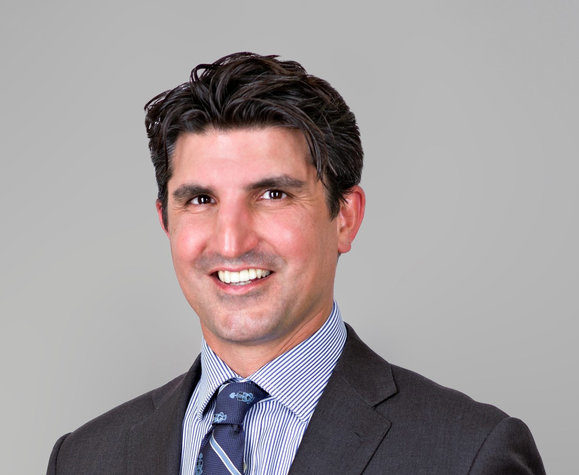
Mr Livio Di Mascio is a full time Orthopaedic Surgeon who is working as the lead of the Upper Limb Orthopaedic Department at The Royal London Hospital where he has worked since his return from Australia in 2011. The unit is one of the busiest tertiary referral trauma units in the UK and receives trauma and elective tertiary referrals from London and the South East.
Clinical Director Hily Perpinyal interviews Mr Livio Di Mascio, Consultant Orthopaedic Surgeon in Shoulder, Elbow & Hand and asks him all about rotator cuff injuries/ surgery and rehabilitation.
Q. Can the rotator cuff muscles heal on their own without surgery?
Mr Di Mascio: The rotator cuff are 4 very important muscles that arise from the scapular blade and insert onto the bony prominences of the ball part of the shoulder. They are immensely important in helping to stabilise the shoulder and to balance the action of the larger and more powerful muscles around the shoulder. If they are not working well then there is a tremendous amount pain and shoulder dysfunction experienced by the patient. Just like any muscle, it attaches to the bone via a tendon. The rotator cuff insert onto the bony prominences on the ball part of the shoulder as a sheet or ‘cuff’. It is possible to tear these tendons and there is a spectrum of severity. The ranges from a strain injury where there is an inflammatory response, and usually this continues to uneventful repair with time and the appropriate physical therapy. Sometimes this can lead to a process of dysrepair, or ‘tendinopathy’, which again usually will repair itself with the appropriate therapy and non-operative treatments. When however the structure of the tendon is disrupted, usually with a varying thickness of the tendon being torn from the bone where it attaches, this may not spontaneously heal.
Q. What makes you decide when somebody needs a rotator cuff repair?
Mr Di Mascio: The indication for surgical treatment is either when non-operative measures have failed to resolve the patient’s symptoms or when there is really no expectation that the tendon will heal itself. Full thickness tears when the tendon has pulled away from the bone completely generally will benefit from surgical repair. Factors for example age and activity level are taken into consideration but generally individuals who have at least a reasonable level of activity will benefit from surgical repair, which in almost all instances is performed arthroscopically (keyhole). Unfortunately there is often a time related factor that needs to be considered. If a full thickness tear of a tendon off the bone exists, this will retract further away from it’s point of origin with time, and subsequently can become irreparable. The best results are always likely to be with early surgery in this setting which is why early assessment and diagnosis is recommended.
Q. What is the average recovery time?
Mr Di Mascio: This is influenced by patient age and size of tear. We generally see that more senior the patient and the larger the tear, the longer recovery and return of function will be. Every tear is different but generally the shoulder will need to be immobilised from between 2 and 4 weeks to allow for some initial healing of the tendon back to the bone in the repaired position. During this early phase, some very simple exercises, supervised by a physiotherapist, helps avoid the shoulder getting stiff. Once weaned out of the sling, the next milestone is to regain a full range of motion. Once achieved, strengthening of the rotator cuff is performed. Depending on the size of the tear, strengthening of the rotator cuff is performed anywhere from 8 to 12 weeks following the surgical repair of the tendon.
Q. How important is strengthening rehabilitation before and after rotator cuff surgery?
Mr Di Mascio: Generally strengthening before surgery is not that helpful but maintaining a good range of motion is. After a rotator cuff repair however it essential to be closely supervised by an experienced physiotherapist to help obtain an optimal outcome. The secret is not to do too little, as the shoulder may become stiff, but in the same way too much load too early may compromise the healing tendon repair.
Q. Active patients often worry that they will not be able to continue with hobbies and sporting activities following surgery. What’s your opinion on this?
Mr Di Mascio: Quite the opposite. Often surgery is the only way to get individuals back to the sports and activities that they enjoy. The art is identifying which patients require surgery, and when. Most patients however do not require surgical intervention I am pleased to say but always having a clear and accurate understanding of the problem is the best way of getting the best outcomes for individuals and also helps the patient understand the treatment strategy that best suits them.
